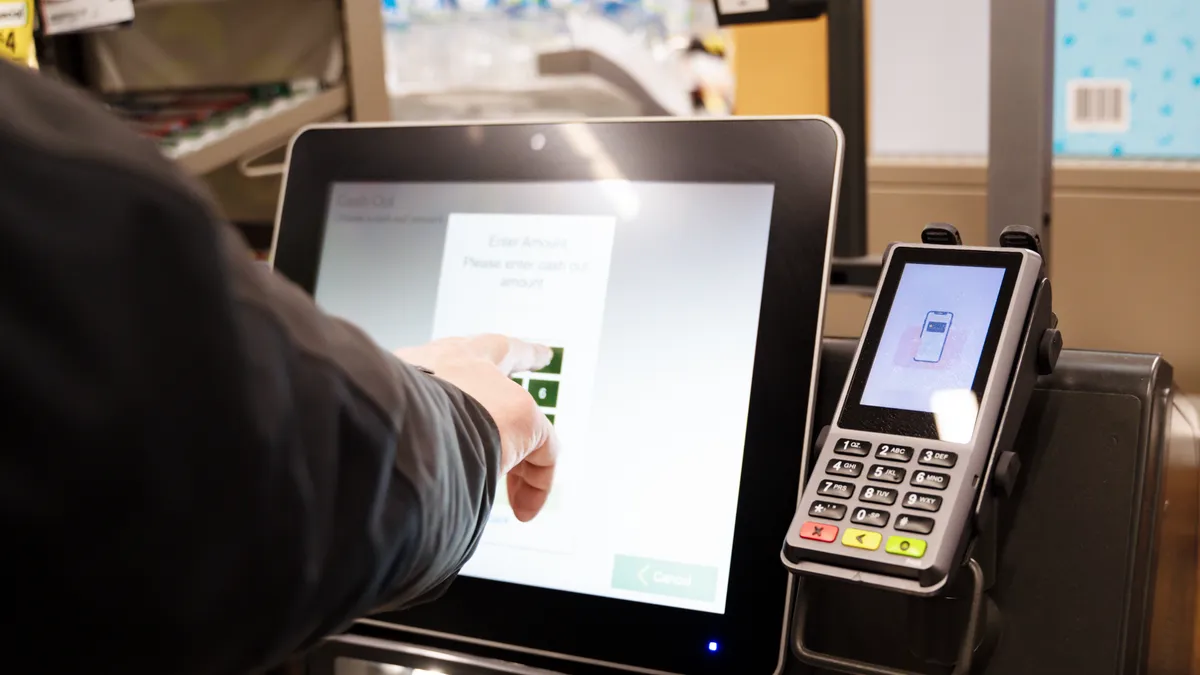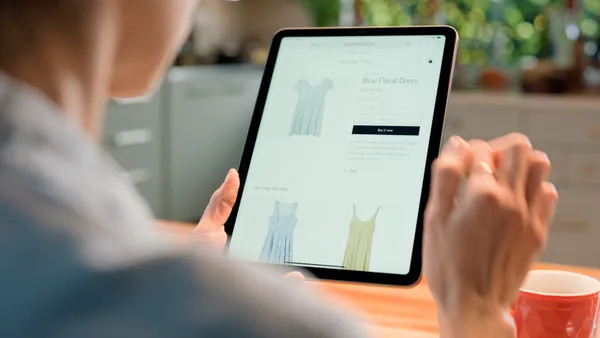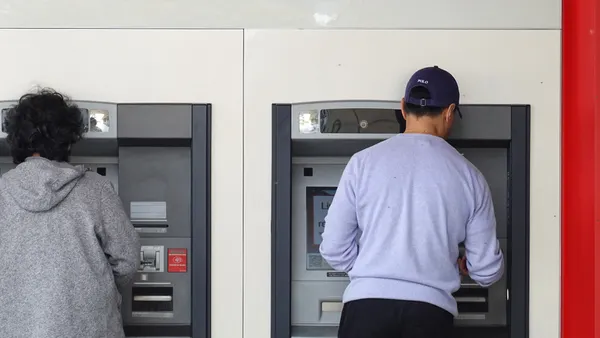Dive Brief:
- Self-checkout terminals are now the dominant grocery checkout format, accounting for 55% of transactions in 2022, according to a new VideoMining study released Tuesday.
- At the end of 2022, self-checkout made up nearly half (48%) of all checkout registers, with shoppers continuing to seek out these machines as they become more accustomed to them, according to the findings.
- Grocers have turned to self-checkout technology more in recent years in order to improve the in-store shopping experience as well as combat rising labor costs and labor shortages.
Dive Insight:
VideoMining’s study found that shoppers are increasingly embracing self-checkout, with usage increasing by 53% in five years and by 17% from 2020 to 2022.
The shopper insights firm, which works with retailers including Target, Walmart and Family Dollar, credits this boost in self-checkout utilization to the option being more available as shoppers gravitate toward self-service tools. Grocers have also expanded self-checkout services to improve the customer experience: 70% of shoppers did not have to wait in line at all in 2022 — a significant increase from only 19% of shoppers in 2017, according to VideoMining’s study.
Aside from an improved customer experience, self-checkout has also boosted grocers’ front-end sales. Dollars per 100 store visitors sold from self-checkout terminals in 2022 more than doubled compared to 2020, the report said. During this same two-year period, grocers altered their front-end merchandising strategies to offer more products.
Even with the wait time in self-checkout lanes being shorter, shoppers are engaging with products offered at the front end of the store at a higher rate, according to the study.
Despite the growing success of self-checkout for grocers, traditional checkout lanes still account for a higher amount of overall sales, per the study. The traditional checkout option outperformed self-checkout lanes by 38% in terms of dollars per 100 store visitors in 2022.
However, this performance gap between traditional checkout and self-checkout is narrowing and will continue to do so, according to VideoMining’s report.
The survey emphasizes that grocers and suppliers need a clear understanding of in-store shopping behaviors to make the most of self-checkout. Due to limited space at grocers’ front ends, the assortment of products, self-checkout layout and the “dynamics of shopper flow” are key metrics to the success of self-checkout.
Large retailers like Albertsons and Walmart have accelerated their rollout of self-checkout terminals in recent years — in some cases establishing stores that only offer self-checkout terminals — while small and regional grocers have also implemented the technology. At the same time, self-checkout systems are seeing more innovation flow in, from age verification technology to produce-recognition software.













